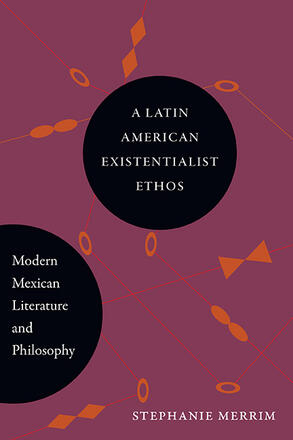
A Latin American Existentialist Ethos
Modern Mexican Literature and Philosophy
Alternative formats available from:
Examines twentieth-century Mexican literature and philosophy within the broad panorama of Latin American and European existentialisms.
Description
With their emphasis on freedom and engagement, European existentialisms offered Latin Americans transformative frameworks for thinking and writing about their own locales. In taking up these frameworks, Latin Americans endowed them with a distinctive ethos, a turn towards questions of identity and ethics. Stephanie Merrim situates major literary and philosophical works—by the existentialist Grupo Hiperión, Rosario Castellanos, Octavio Paz, José Revueltas, Juan Rulfo, and Rodolfo Usigli—within this dynamic context. Collectively, their writings manifest an existentialist ethos attuned to the matters most alive and pressing in their specific situations—matters linked to gender, Indigeneity, the Mexican Revolution, and post-Revolution politics. That each of these writers orchestrates a unique center of gravity renders Mexican existentialist literature an always shifting, always passionate adventure. A Latin American Existentialist Ethos takes readers on this adventure, conveying the passions of its subjects lucidly and vibrantly. It is at once a detailed portrait of twentieth-century Mexican existentialism and an expansive look at Latin American literary existentialism in relation—and opposition—to its European counterparts.
Stephanie Merrim is Professor Emerita of Comparative Literature and Hispanic Studies at Brown University. She is the author of several books including Early Modern Women’s Writing and Sor Juana Inés de la Cruz and The Spectacular City, Mexico, and Colonial Hispanic Literary Culture.
Reviews
"Stephanie Merrim offers a long overdue and profound reconsideration of the reception and influence of existentialism, a major modern philosophical current, in the intellectual life of Mexico. This book produces not just a historical account of a significant episode in Spanish American culture but itself exemplifies a turn to existentialist ideas and concerns in contemporary criticism and theory. This is a deeply thought-out and thoroughly researched work that renews our appreciation of authors many of us thought we knew quite well, such as Rulfo and Castellanos, and argues for the current relevance of less studied writers such as the playwright Rodolfo Usigli and the novelist and activist José Revueltas." — Aníbal González, author of In Search of the Sacred Book: Religion and the Contemporary Latin American Novel